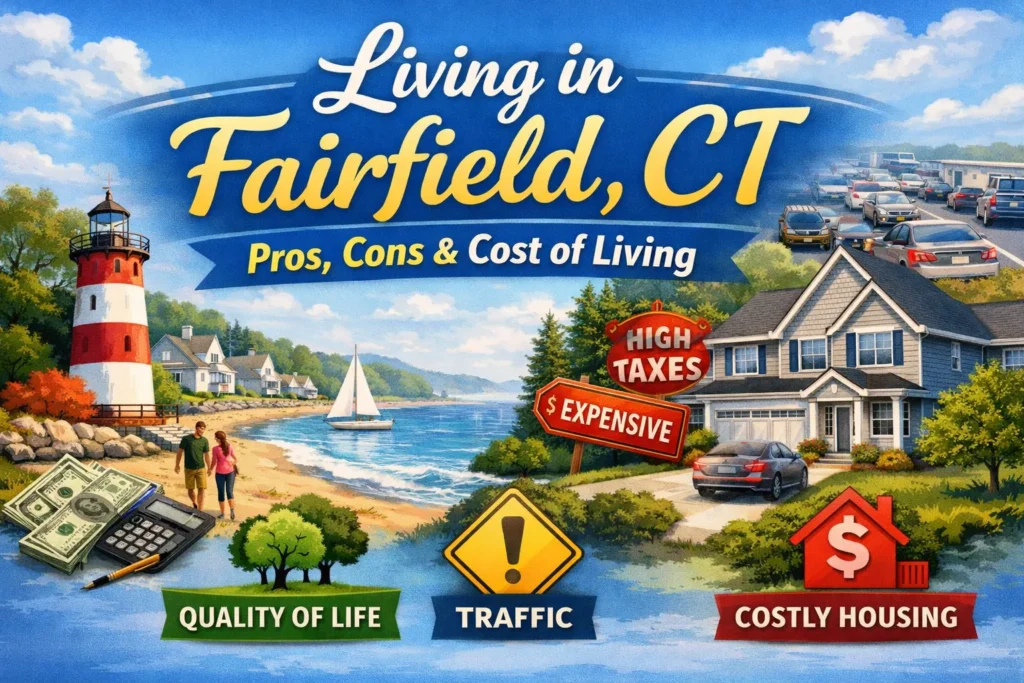Buying a house online sounds exciting, right?
The idea of browsing homes, taking virtual tours, and even closing the deal from your couch feels like the future. But here’s the thing—while it’s convenient, it’s not always as simple as it seems.
Many people rush into buying home online and end up making mistakes, like depending too much on online estimates or missing important details that photos can’t show. This can lead to disappointment or even costly regrets.
But don’t worry— with a little planning and the right steps, you’ll find the answer to ‘Can you buy a house online?’ and make the process work for you.
This blog post will walk you through what to watch out for and how to make smart choices so that finding your dream home online feels less stressful and more rewarding.
Take a Look→ Houses For Sale in Easton CT
Things To Do Before Buying a Home
Buying a home is a big step, and it’s important to be prepared. Here are five simple things you should do to make the process easier and smoother:
1. Check Your Credit Score
Your credit score is super important when it comes to getting approved for a mortgage. The higher your score, the better your loan terms will be. A score over 720 is good, and 750 or higher is excellent. If your score needs a boost, start by paying down your credit card debt and making all your payments on time. A better credit score can save you a lot of money in the long run.
2. Know What You Can Afford
Before you start looking for homes, figure out how much you can comfortably afford to pay each month for a mortgage. Think about your other expenses, too, like utilities and groceries, so you don’t stretch your budget too thin. You’ll also need to plan for a down payment and closing costs. Once you know what fits your budget, get pre-approved for a mortgage. This will show sellers that you’re serious about buying.
3. Save for a Down Payment
Most experts recommend saving at least 20% of the home’s price for a down payment. While you can still buy with less, a bigger down payment means lower monthly payments and avoiding extra costs like private mortgage insurance. If saving that much feels hard, look into down payment assistance programs that might help you with interest-free or forgivable loans.
4. Get Your Paperwork Ready
Lenders will ask for a lot of financial documents, so it’s a good idea to have them ready. This includes things like your last two pay stubs, W-2s, or tax returns for the past two years and recent bank statements. Having these on hand will make the loan process faster and less stressful.
5. Research Neighborhoods
Take time to explore different areas where you might want to live. Think about things like school districts, property taxes, and whether the neighborhood feels like a good fit for your family. For example, a neighborhood with lots of rental properties might not be the best choice if it impacts property values over time.
6. Be Prepared for Hidden Costs
Owning a home comes with extra costs you might not expect. From plumbers and exterminators to repairs and maintenance, these expenses can add up over time. Even after you move in, keep saving money for surprises like a broken heater or a leaky roof. Planning ahead can save you a lot of stress later.
7. Find the Right Real Estate Agent
Having the right agent truly makes all the difference when buying a home. Kristin Egmont listens to your needs, respects your preferences, and ensures you feel comfortable every step of the way. A good agent will guide you through the process without pressuring you into decisions. You’ll be spending a lot of time together, so it’s important to work with someone you trust.
Also Explore→ Fairfield CT Homes For Sale
Pros and Cons of Buying a House Online
Shopping for a home online can be a great way to start your search, but at some point, you’ll need to take the next step and see homes in person. Online tools can make the process easier, but there are some things they just can’t do.
Here’s a simple look at the advantages and disadvantages to keep in mind.
Pros of Online Home Shopping
- You Can Narrow Down What You Want: The internet makes it so much easier to figure out what kind of home suits you. Whether you want to live close to schools, the beach, or your favorite restaurants, you can explore options online. You can also compare neighborhoods, check crime rates, and look at aerial views to decide where you’d feel most comfortable.
- It’s Super Convenient: Browsing for homes online lets you search whenever you have free time. You don’t need to wait for a real estate agent to send you options—you can take virtual tours and gather information at your own pace, even while waiting in line at the grocery store.
- Saves Time Before Seeing Homes in Person: Looking through listings online can help you decide which homes are worth visiting. Once you’ve shortlisted, your agent can arrange in-person showings for the ones that truly match what you’re looking for. This is especially helpful if you’re moving from a different city or state.
Did You Know? A staggering 94% of buyers now turn to online platforms—websites, mobile apps, and more—when searching for their dream home. This shows how essential digital tools have become in today’s real estate market, reshaping the way people buy homes. |
Cons of Online Home Shopping
- Timing Can Be a Problem: In a fast-moving market, homes sell quickly. Relying on online searches alone might mean you miss out. A real estate agent can alert you to new listings immediately and help you act fast to make a competitive offer.
- Online Listings Don’t Tell the Full Story: Photos and virtual tours are designed to highlight a home’s best features. They won’t show hidden problems like water damage, pest issues, or other flaws. That’s why it’s important to investigate thoroughly and visit homes in person.
- Limited Personal Insights: While online searches give you basic information, they don’t provide the insights a real estate agent can. Agents know the neighborhoods, communities, and details that you can’t find on a website. Their advice can make a big difference in your decision.
- Hard to Imagine Living in the Space: Looking at a home online isn’t the same as walking through it. Standing in the rooms, seeing the backyard, and testing things like the water pressure can help you picture yourself living there. Homes often have a feeling or personality that you can only experience in person.
- Watch Out for Scams: Unfortunately, some websites may not be trustworthy. Scammers may try to collect your personal information. Always double-check that the sites you use are legitimate and, if possible, work with a reliable local agent to avoid any risks.
- Doesn’t Prepare You for Buying: Browsing online is just one part of the process. If you’re serious about buying, you’ll need to get pre-approved for a mortgage. Online calculators can give you a rough idea of your budget, but only pre-approval will let you know how much you can actually spend and make you ready to put in an offer.
Online home shopping is a great tool to save time and explore what’s available in the market, but it does have its limits. Use it as a starting point to understand your options, and then let someone like Kristin Egmont guide you through the rest of the process. She’ll help you avoid pitfalls and find the home that’s perfect for you.
Top Mistakes to Avoid When Buying a House Online
Buying home online can feel convenient, but it’s important to avoid some common mistakes that could lead to problems later. Here’s a simple look at what you should watch out for:
- Hiring an Agent Without an Interview
Many people make the mistake of hiring an agent just because they reached out through an online inquiry, without asking questions or checking their background. Take the time to interview a few agents to ensure you’re choosing someone you trust to guide you through this big decision. - Trusting Internet Mortgage Calculators Completely
While mortgage calculators can give you a rough idea of monthly payments, don’t depend on them for exact figures. Interest rates can change, and if you choose a variable-rate mortgage, your payment could go up or down over time. It’s best to speak with a lender to get an accurate estimate of your costs. - Borrowing from Unreliable Online Lenders
It might be tempting to use an online lender that promises quick approval, but some of these lenders can be scams. Stick to local lenders or trusted companies that can offer personalized advice and help you find the right mortgage for your budget and needs - Forgetting to Use a Buyer’s Agent
If you’re dealing with an agent who is working for the seller, remember that their loyalty is to the seller, not you. A buyer’s agent, on the other hand, represents your interests. Make sure you engage a buyer’s agent to protect your rights and help you negotiate a better deal. - Trying to Do Everything on Your Own
Buying a home involves a lot of legal paperwork and steps that can be confusing. If you try to handle everything by yourself, you could end up signing a contract that doesn’t protect you. A professional agent can guide you through the process and make sure everything is done correctly. - Making an Impulse Purchase
It’s easy to get frustrated with the home-buying process, especially if you’ve been searching for a while. But rushing into a decision can lead to buying a home that doesn’t meet your long-term needs. Take your time, ask questions, and thoroughly inspect the property before signing anything.
Buying home online can be a great option if done carefully. By avoiding these mistakes, you can make the process smoother and ensure you’re making the best decision for your future.
Work With an Experienced Agent to Avoid These Mistakes.!
Reach out to Kristin Egmont for the guidance you need to make your home-buying journey smooth and stress-free!
Is Online Home Buying the Future of Real Estate?
Online home buying has made finding and exploring homes much easier. You can browse listings, take virtual tours, and compare neighborhoods without leaving your home.
Now that we have answered the question, can you buy a house online? Also know that Kristin Egmont makes the buying home online experience even easier and stress-free for you. Her expertise and personal approach ensure that you feel confident and supported every step of the way, blending the ease of online tools with professional guidance.
Additionally, as a trusted Westport Real Estate Broker and a specialist in Trumbull CT Real Estate, Kristin works with clients nationwide. Her extensive knowledge and dedication make her the perfect partner for finding your dream home, no matter where you’re looking.
To ensure the property is legally owned by the seller and free of any disputes, you’ll need a title search. This process involves reviewing public records to check for any liens, unpaid taxes, or other claims against the property.
You can hire a title company or a real estate attorney to handle this for you. On the top of that, working with an experienced real estate agent like Kristin Egmont, who is highly regarded in Connecticut and nationwide, can also make this process seamless. Kristin not only connects you with trusted professionals but ensures every step is handled smoothly, giving you peace of mind that the property is legally clear for purchase.
Making a down payment online can be safe if done through secure and verified methods. Most home purchases use escrow accounts managed by a trusted third party. These accounts hold your funds securely until all conditions of the sale are met. Avoid transferring funds directly to individuals or accounts you haven’t verified.
Always double-check the recipient’s information, and contact your escrow company or a reliable real estate agent like Kristin Egmont to confirm the process. Kristin’s expertise ensures you’re using legitimate channels and protects you from potential risks, making your home-buying experience smooth and secure.
Yes, many online platforms list foreclosed homes and allow you to place bids. These platforms often provide essential details like starting bids, auction dates, and property conditions. However, it’s important to review the terms and conditions of the auction carefully. Keep in mind that foreclosed homes are often sold “as-is,” meaning you’re responsible for any repairs or issues.
Research the property thoroughly, and if possible, visit the site for a clearer view. An experienced real estate agent like Kristin Egmont can guide you through the process, helping you evaluate the property and make informed decisions to avoid costly mistakes.
Yes, there are tax implications tied to property ownership. These include property taxes based on the home’s assessed value, which vary by state and county. You might also qualify for tax deductions, such as mortgage interest or property tax deductions, if applicable in your case. Additionally, first-time buyers in some states may benefit from tax incentives or credits.
Kristin Egmont, known for her expertise in real estate, can help you understand these details and ensure you’re informed about any tax-related considerations tied to your purchase.
Homeowners’ insurance is a must before closing on a house. It protects your investment from risks like fire, theft, or natural disasters. When choosing a policy, consider factors like the property’s location, potential risks (e.g., flood zones), and coverage limits.
You can request quotes online from multiple insurance providers to compare costs and benefits. Ensure the policy meets your lender’s requirements, as they often have specific coverage standards that must be met before approving your loan.




